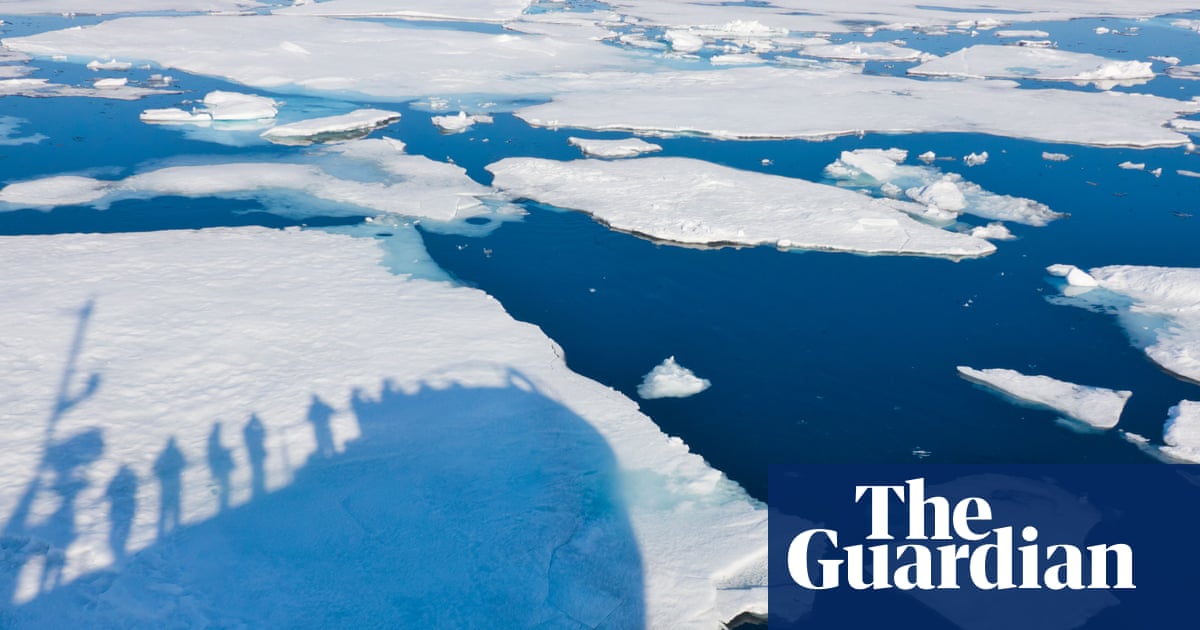
"The melting of sea ice in the Arctic has slowed dramatically in the past 20 years, scientists have reported, with no statistically significant decline in its extent since 2005. The finding is surprising, the researchers say, given that carbon emissions from fossil fuel burning have continued to rise and trap ever more heat over that time. They said natural variations in ocean currents that limit ice melting had probably balanced out the continuing rise in global temperatures."
"However, they said this was only a temporary reprieve and melting was highly likely to start again at about double the long-term rate at some point in the next five to 10 years. The findings do not mean Arctic sea ice is rebounding. Sea ice area in September, when it reaches its annual minimum, has halved since 1979, when satellite measurements began. The climate crisis remains unequivocally real, the scientists said, and the need for urgent action to avoid the worst impacts remains unchanged."
Arctic sea ice loss slowed markedly over the past 20 years, showing no statistically significant decline since 2005 despite rising carbon emissions and warming. Natural variability in Atlantic and Pacific ocean currents likely reduced warm-water inflow to the Arctic, offsetting continued temperature increases and temporarily limiting melting. This pause is expected to be short-lived, with melting likely to resume at roughly double the long-term rate within five to ten years. September sea ice area remains about half of 1979 levels, and seasonal ice-free conditions are still anticipated later this century, amplifying regional harm and global warming.
Read at www.theguardian.com
Unable to calculate read time
Collection
[
|
...
]